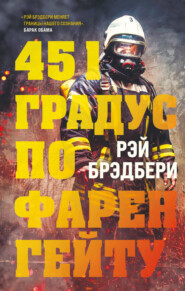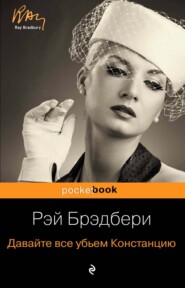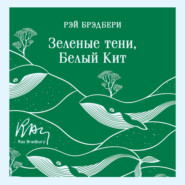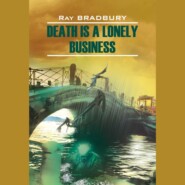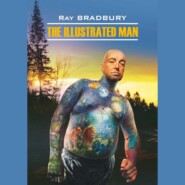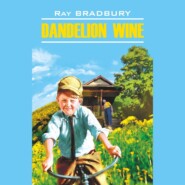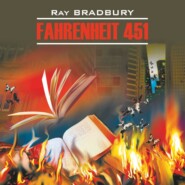По всем вопросам обращайтесь на: info@litportal.ru
(©) 2003-2024.
✖
Golden Apples of the Sun
Автор
Год написания книги
2018
Настройки чтения
Размер шрифта
Высота строк
Поля
“Is it not beautiful, Excellency?”
“Yes, too beautiful.”
“It is the only one in the world!” smiled the man. “And I am the inventor.”
“The only one in the world?”
“I swear it!”
“Who else knows of this?”
“No one. Not even my wife, who would think me mad with the sun. She thought I was making a kite. I rose in the night and walked to the cliffs far away. And when the morning breezes blew and the sun rose, I gathered my courage, Excellency, and leaped from the cliff. I flew! But my wife does not know of it.”
“Well for her, then,” said the Emperor. “Come along.”
They walked back to the great house. The sun was full in the sky now, and the smell of the grass was refreshing. The Emperor, the servant, and the flier paused within the huge garden.
The Emperor clapped his hands. “Ho, guards!”
The guards came running.
“Hold this man.”
The guards seized the flier.
“Call the executioner,” said the Emperor.
“What’s this!” cried the flier, bewildered. “What have I done?” He began to weep, so that the beautiful paper apparatus rustled.
“Here is the man who has made a certain machine,” said the Emperor, “and yet asks us what he has created. He does not know himself. It is only necessary that he created, without knowing why he has done so, or what this thing will do.”
The executioner came running with a sharp silver ax. He stood with his naked, large-muscled arms ready, his face covered with a serene white mask.
“One moment,” said the Emperor. He turned to a nearby table upon which sat a machine that he himself had created. The Emperor took a tiny golden key from his own neck. He fitted his key to the tiny, delicate machine and wound it up. Then he set the machine going.
The machine was a garden of metal and jewels. Set in motion, the birds sang in tiny metal trees, wolves walked through miniature forests, and tiny people ran in and out of sun and shadow, fanning themselves with miniature fans, listening to tiny emerald birds, and standing by impossibly small but tinkling fountains.
“Is it not beautiful?” said the Emperor. “If you asked me what I have done here, I could answer you well. I have made birds sing, I have made forests murmur, I have set people to walking in this woodland, enjoying the leaves and shadows and songs. That is what I have done.”
“But, oh, Emperor!” pleaded the flier, on his knees, the tears pouring down his face. “I have done a similar thing! I have found beauty. I have flown on the morning wind. I have looked down on all the sleeping houses and gardens. I have smelled the sea and even seen it, beyond the hills, from my high place. And I have soared like a bird; oh, I cannot say how beautiful it is up there, in the sky, with the wind about me, the wind blowing me here like a feather, here like a fan, the way the sky smells in the morning! And how free one feels! That is beautiful, Emperor, that is beautiful too!”
“Yes,” said the Emperor sadly, “I know it must be true. For I felt my heart move with you in the air and I wondered: What is it like? How does it feel? How do the distant pools look from so high? And how my houses and servants? Like ants? And how the distant towns not yet awake?”
“Then spare me!”
“But there are times,” said the Emperor, more sadly still,, “when one must lose a little beauty if one is to keep what little beauty one already has. I do not fear you, yourself, but I fear another man.”
“What man?”
“Some other man who, seeing you, will build a thing of bright papers and bamboo like this. But the other man will have an evil face and an evil heart, and the beauty will be gone. It is this man I fear.”
“Why? Why?”
“Who is to say that someday just such a man, in just such an apparatus of paper and reed, might not fly in the sky and drop huge stones upon the Great Wall of China?” said the Emperor.
No one moved or said a word.
“Off with his head,” said the Emperor.
The executioner whirled his silver ax.
“Burn the kite and the inventor’s body and bury their ashes together,” said the Emperor.
The servants retreated to obey.
The Emperor turned to his hand-servant, who had seen the man flying. “Hold your tongue. It was all a dream, a most sorrowful and beautiful dream. And that farmer in the distant field who also saw, tell him it would pay him to consider it only a vision. If ever the word passes around, you and the farmer die within the hour.”
“You are merciful, Emperor.”
“No, not merciful,” said the old man. Beyond the garden wall he saw the guards burning the beautiful machine of paper and reeds that smelled of the morning wind. He saw the dark smoke climb into the sky. “No, only very much bewildered and afraid.” he saw the guards digging a tiny pit wherein to bury the ashes. “What is the life of one man against those of a million others? I must take solace from that thought.”
He took the key from its chain about his neck and once more wound up the beautiful miniature garden. He stood looking out across the land at the Great Wall, the peaceful town, the green fields, the rivers and streams. He sighed. The tiny garden whirred its hidden and delicate machinery and set itself in motion; tiny people walked in forests, tiny faces loped through sun-speckled glades in beautiful shining pelts, and among the tiny trees flew little bits of high song and bright blue and yellow color, flying, flying, flying in that small sky.
“Oh,” said the Emperor, closing his eyes, “look at the birds, look at the birds!”
The Murderer (#ulink_6bf2cdbc-bc59-5563-905d-09cc5700f4df)
Music moved with him in the white halls. He passed an office door: “The Merry Widow Waltz.” Another door: “Afternoon of a Faun.” A third: “Kiss Me Again.” He turned into a cross corridor: “The Sword Dance” buried him in cymbals, drums, pots, pans, knives, forks, thunder, and tin lightning. All washed away as he hurried through an anteroom where a secretary sat nicely stunned by Beethoven’s Fifth. He moved himself before her eyes like a hand; she didn’t see him.
His wrist radio buzzed.
“Yes?”
“This is Lee, Dad. Don’t forget about my allowance.”
“Yes, son, yes. I’m busy.”
“Just didn’t want you to forget, Dad,” said the wrist radio. Tchaikovsky’s “Romeo and Juliet” swarmed about the voice and flushed into the long halls.
The psychiatrist moved in the beehive of offices, in the crosspollination of themes, Stravinsky mating with Bach, Haydn unsuccessfully repulsing Rachmaninoff, Schubert slain by Duke Ellington. He nodded to the humming secretaries and the whistling doctors fresh to their morning work. At his office he checked a few papers with his stenographer, who sang under her breath, then phoned the police captain upstairs. A few minutes later a red light blinked, a voice said from the ceiling:
“Prisoner delivered to Interview Chamber Nine.”
He unlocked the chamber door, stepped in, heard the door lock behind him.
“Go away,” said the prisoner, smiling.
The psychiatrist was shocked by that smile. A very sunny, pleasant warm thing, a thing that shed bright light upon the room. Dawn among the dark hills. High noon at midnight, that smile. The blue eyes sparkled serenely above that display of self-assured dentistry.






